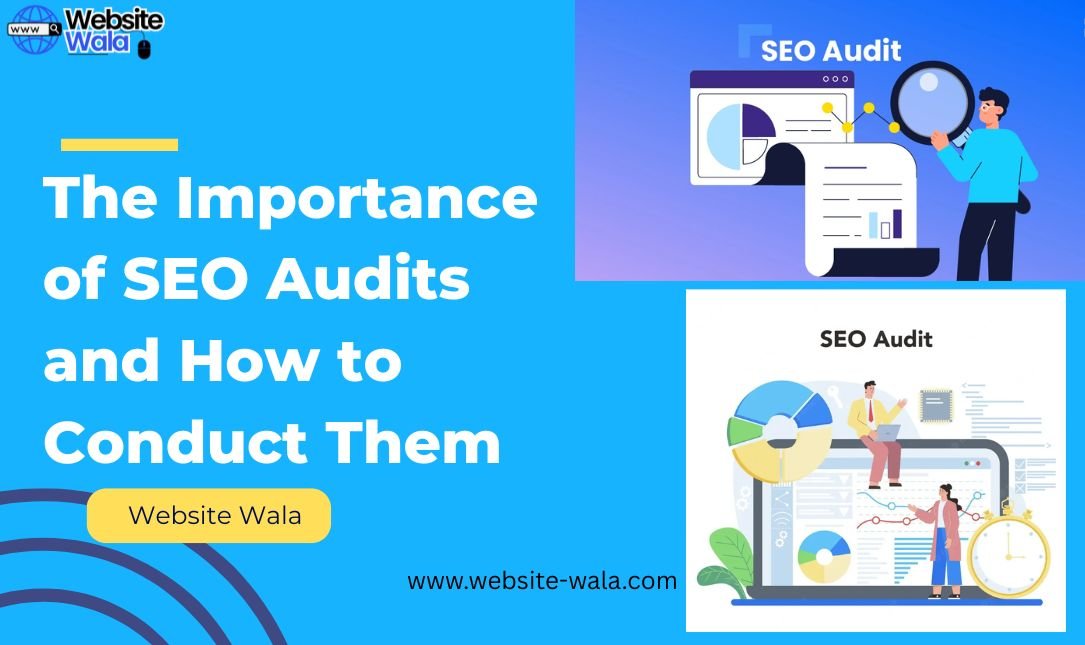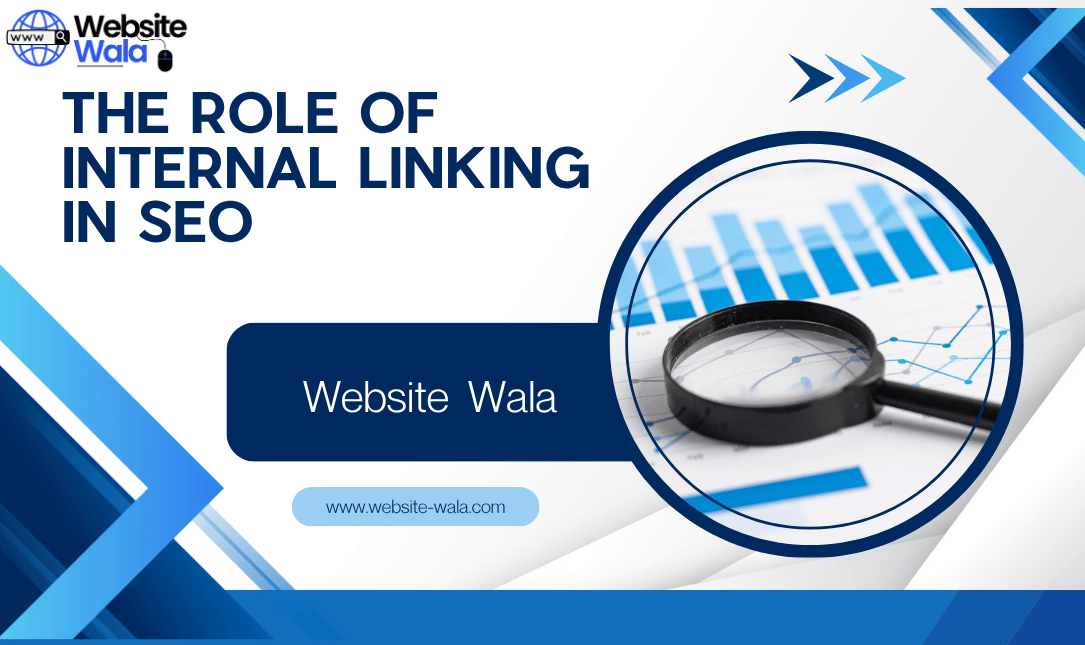
Discover The Importance of SEO Audits and How to Conduct Them to boost website visibility, traffic, and search engine rankings effectively.
The Importance of SEO Audits and How to Conduct Them
In the dynamic world of digital marketing, staying ahead of competitors requires constant evaluation and improvement. One of the most effective ways to ensure your website performs at its best is through regular SEO audits. Understanding The Importance of SEO Audits and How to Conduct Them can dramatically impact your website optimization, website traffic, and overall search engine rankings.
What Are SEO Audits?
An SEO audit is a comprehensive website analysis that identifies strengths, weaknesses, and opportunities for improving your site’s performance in search engines. It involves evaluating several aspects of your website, including on-page SEO, off-page SEO, and technical SEO factors. The main goal is to ensure your website adheres to search engine best practices and is fully optimized for both users and search algorithms.
When you understand The Importance of SEO Audits and How to Conduct Them, you’ll gain insight into how your site performs and where improvements can be made to enhance website visibility and user experience.
The Importance of SEO Audits and How to Conduct Them for Business Growth
Knowing The Importance of SEO Audits and How to Conduct Them is crucial for maintaining a competitive edge online. Search engine algorithms change frequently, and what worked six months ago may not be effective today. Here’s why SEO audits are essential for long-term success:
1. Improved Search Engine Rankings
Regular SEO audits help identify technical issues, broken links, or poor content optimization that could be lowering your site’s search engine rankings. By resolving these issues, you create a solid foundation for better organic performance.
2. Enhanced Website Performance
A slow or poorly structured website can drive visitors away. Through an audit, you can assess your site’s website performance, including page load times, mobile responsiveness, and overall user experience. Optimizing these elements ensures higher engagement and reduced bounce rates.
3. Better Website Visibility and Traffic
Understanding The Importance of SEO Audits and How to Conduct Them allows you to refine your SEO strategies to boost website visibility. When your site ranks higher in search results, it attracts more website traffic, leading to increased brand awareness and conversions.
4. Data-Driven Decision Making
An SEO audit provides actionable insights backed by real data. This information helps you make informed decisions about keyword research, content creation, and link-building strategies.
5. Strengthening Backlink Profile
Backlink analysis is a core part of any SEO audit. Evaluating your inbound and outbound links helps identify harmful or low-quality backlinks that may be hurting your rankings. Building a strong backlink profile enhances your site’s credibility and authority.
Key Components of an Effective SEO Audit
When learning The Importance of SEO Audits and How to Conduct Them, it’s vital to understand the different components that make up a comprehensive audit. Each element contributes to the overall health and visibility of your website.
1. Technical SEO Audit
Technical SEO focuses on the backend elements of your website. During a technical audit, you’ll analyze factors like:
-
Site speed and mobile-friendliness
-
XML sitemaps and robots.txt configuration
-
Crawl errors and indexability
-
HTTPS security implementation
These aspects ensure that search engines can properly access and understand your site’s content.
2. On-Page SEO Audit
On-page SEO involves optimizing individual pages to target specific keywords and improve their relevance. Key areas include:
-
Title tags, meta descriptions, and headers
-
Internal linking structure
-
Image optimization and alt tags
-
Content relevance and keyword placement
A well-optimized page can significantly improve your search engine rankings and overall website performance.
3. Off-Page SEO Audit
Off-page SEO refers to external factors that influence your site’s authority and reputation. This includes:
-
Backlink analysis to assess quality and relevance
-
Social media signals and brand mentions
-
Online reputation and trustworthiness
A healthy off-page profile ensures your website is viewed as a credible and authoritative source in your industry.
4. Content Optimization Audit
Content is the cornerstone of successful SEO. A content optimization audit evaluates how well your content aligns with user intent and search engine guidelines. This process includes:
-
Reviewing existing content for relevance and freshness
-
Ensuring proper use of keyword research
-
Adding internal links for better navigation
-
Updating outdated or underperforming pages
High-quality, keyword-rich content helps improve website visibility and audience engagement.
How to Conduct an SEO Audit Step-by-Step
Now that you understand The Importance of SEO Audits and How to Conduct Them, let’s go through the steps required to perform one effectively.
Step 1: Use Reliable SEO Tools
Leverage SEO tools like Google Search Console, Ahrefs, SEMrush, or Screaming Frog to gather essential data. These platforms assist with website analysis, crawling errors, backlink analysis, and keyword research.
Step 2: Check Website Accessibility and Indexing
Ensure search engines can crawl and index your website correctly. Use tools to identify blocked pages, broken links, or duplicate content that might affect website optimization.
Step 3: Evaluate On-Page SEO Elements
Review title tags, meta descriptions, and headers for each page. Make sure your target keywords are used naturally and that pages offer valuable information aligned with user intent.
Step 4: Analyze Technical SEO Factors
Audit site speed using Google PageSpeed Insights and check for mobile responsiveness. Technical issues like large image files, unoptimized code, or poor hosting can impact website performance.
Step 5: Perform Backlink Analysis
Assess the quality and quantity of your backlinks. Identify toxic links using SEO tools and disavow them if necessary. Strengthening your link profile boosts search engine rankings.
Step 6: Conduct a Content Optimization Review
Evaluate your content’s relevance, engagement, and keyword usage. Use keyword research to identify opportunities for new topics or to update outdated posts.
Step 7: Review Off-Page SEO Factors
Examine your brand mentions, social signals, and domain authority. Building positive relationships and sharing valuable content across platforms can enhance website visibility.
Step 8: Develop an Action Plan
Once the audit is complete, compile your findings into a report. Create a prioritized list of tasks to address technical issues, improve content optimization, and boost website traffic.
Common Mistakes to Avoid During an SEO Audit
When learning The Importance of SEO Audits and How to Conduct Them, be mindful of common errors such as:
-
Ignoring mobile optimization
-
Overlooking duplicate content
-
Focusing solely on keywords instead of user experience
-
Neglecting off-page SEO strategies
Avoiding these pitfalls ensures your audit delivers accurate and actionable results.
Conclusion: Harnessing The Power of SEO Audits
Understanding The Importance of SEO Audits and How to Conduct Them is essential for any business aiming to succeed online. Regular audits not only help maintain strong search engine rankings but also ensure your website performance aligns with modern SEO standards.
By consistently monitoring and improving your technical SEO, on-page SEO, off-page SEO, and content optimization, you can enhance your website visibility, attract more website traffic, and achieve sustainable digital growth.























